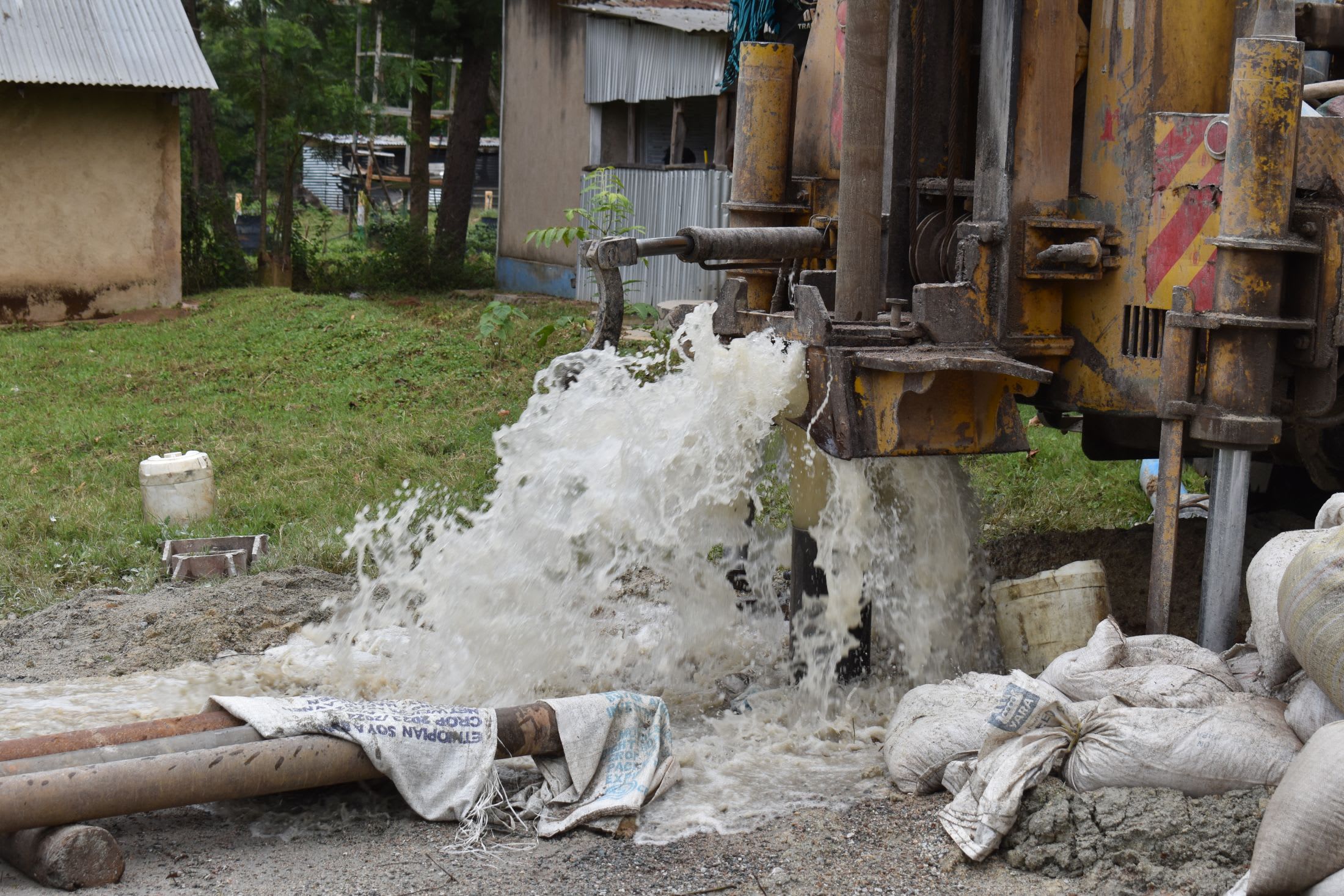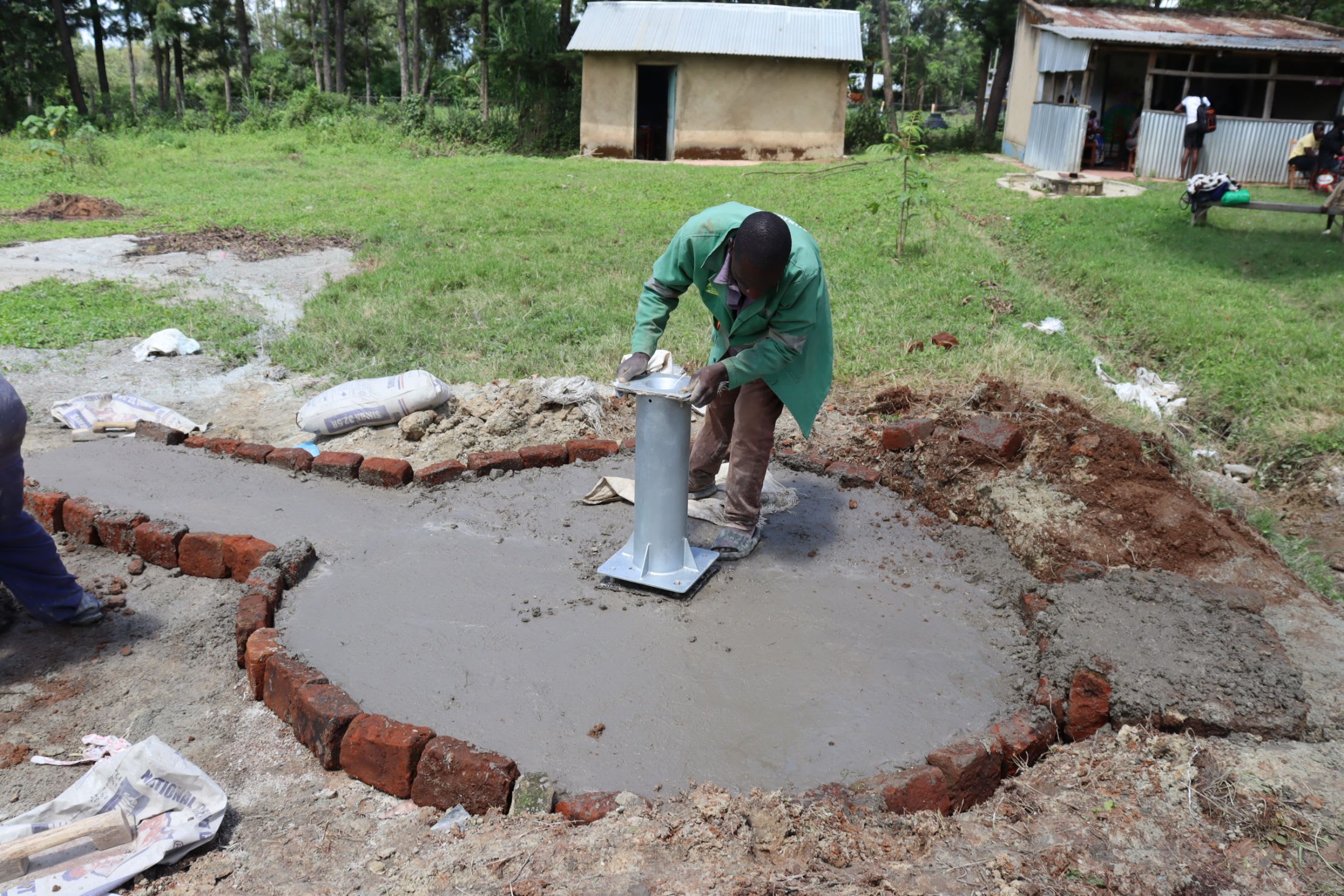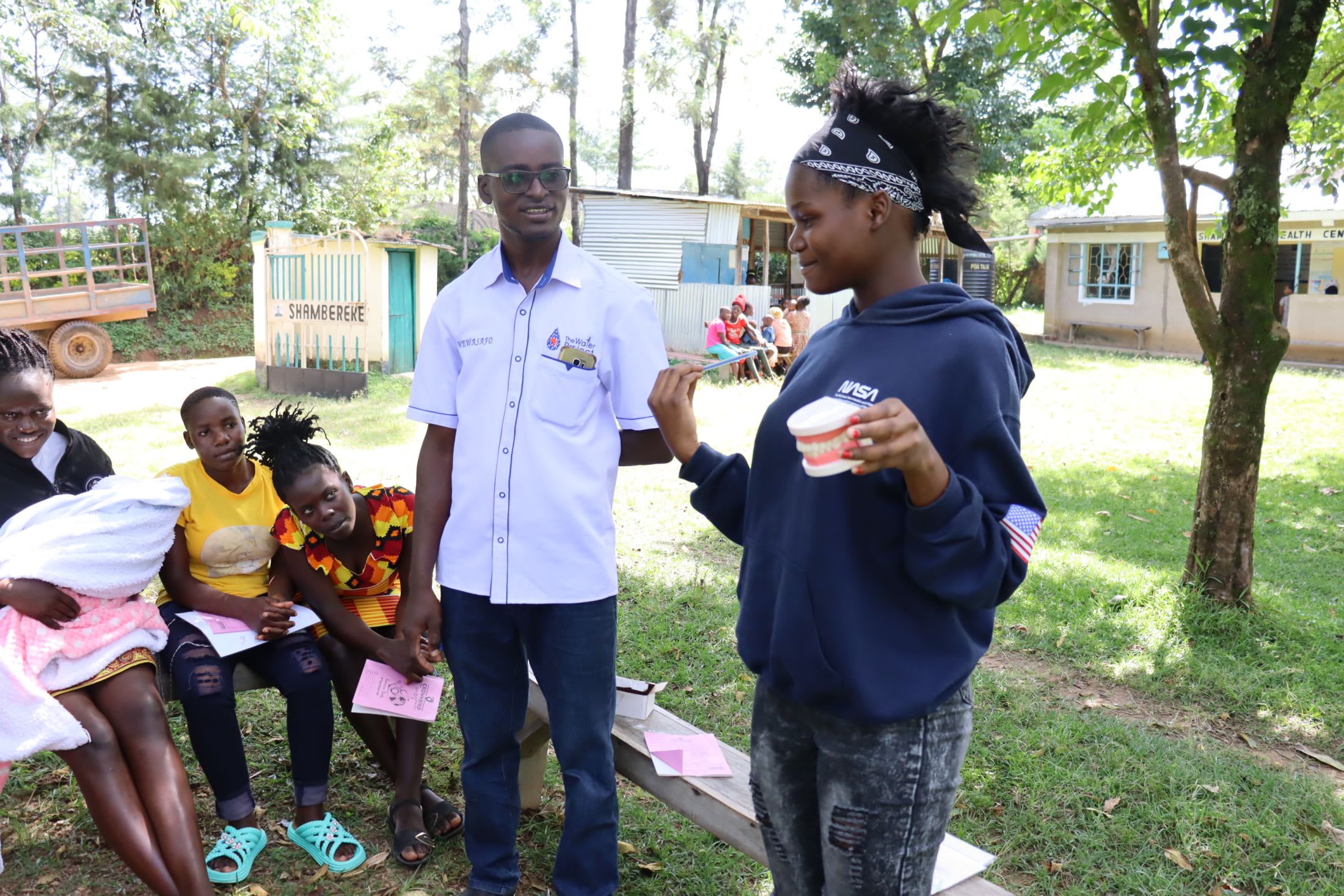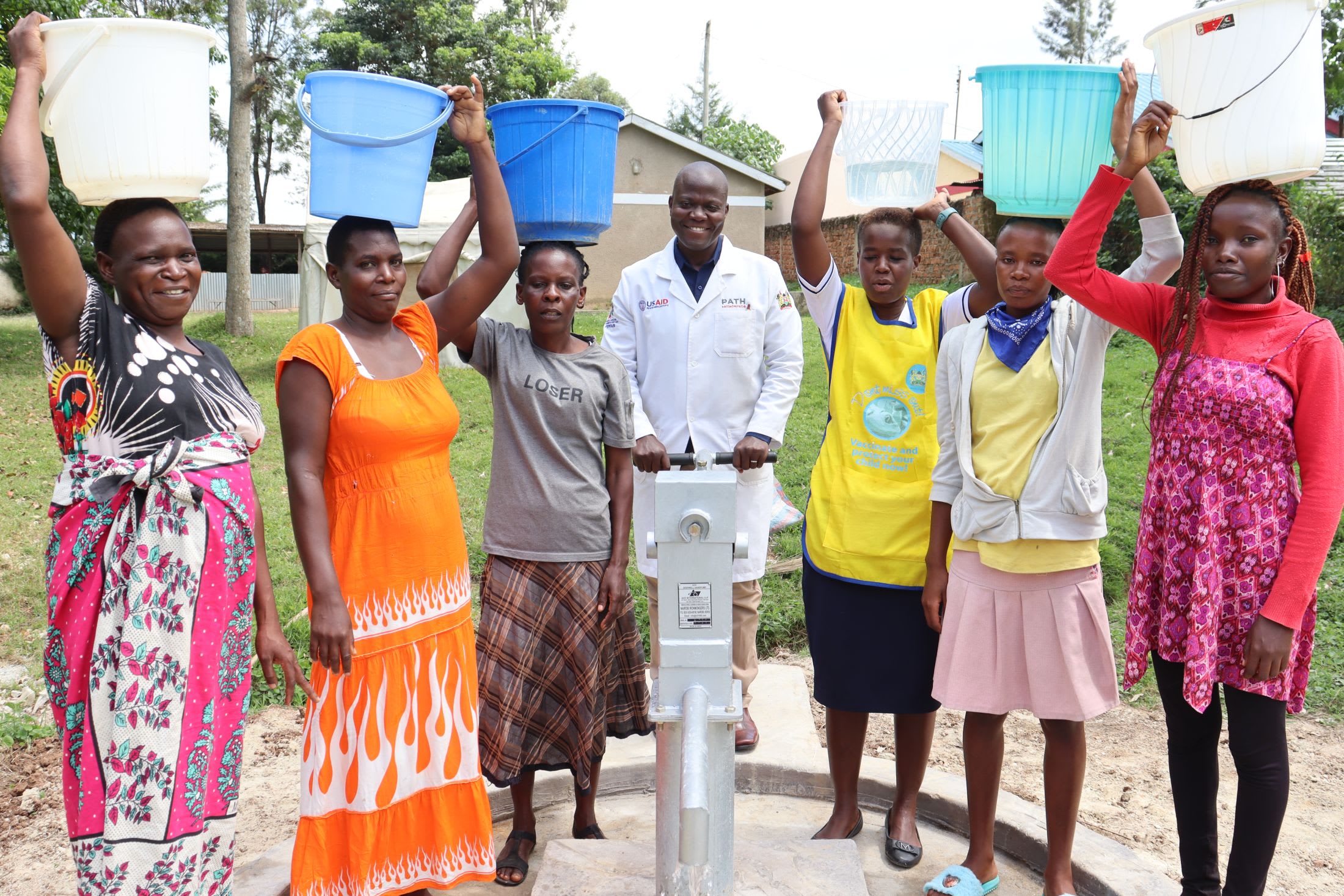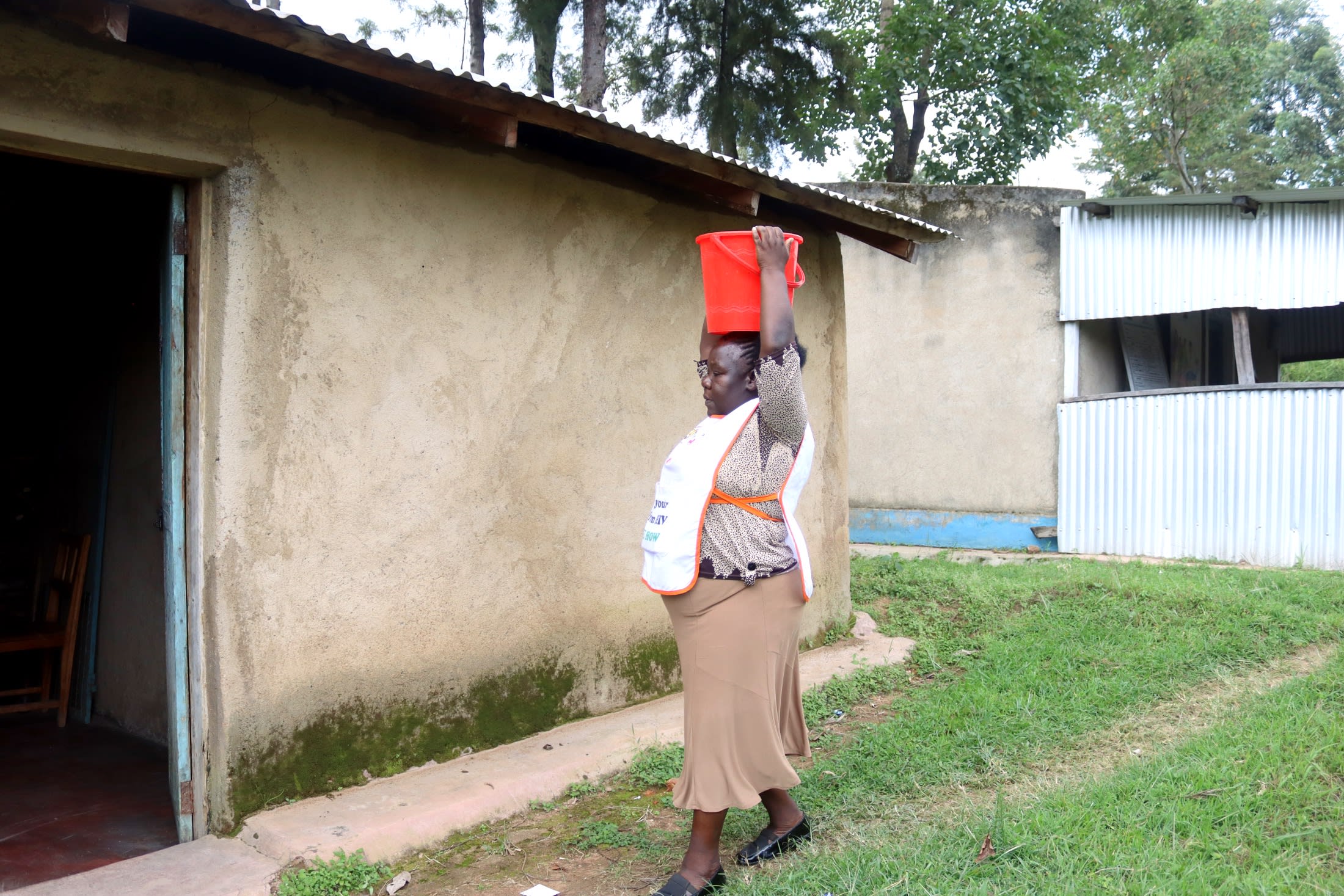The 300 staff members and patients of Shambere Health Center work tirelessly to provide water that isn't safe for medical or personal use, but they have no better option.
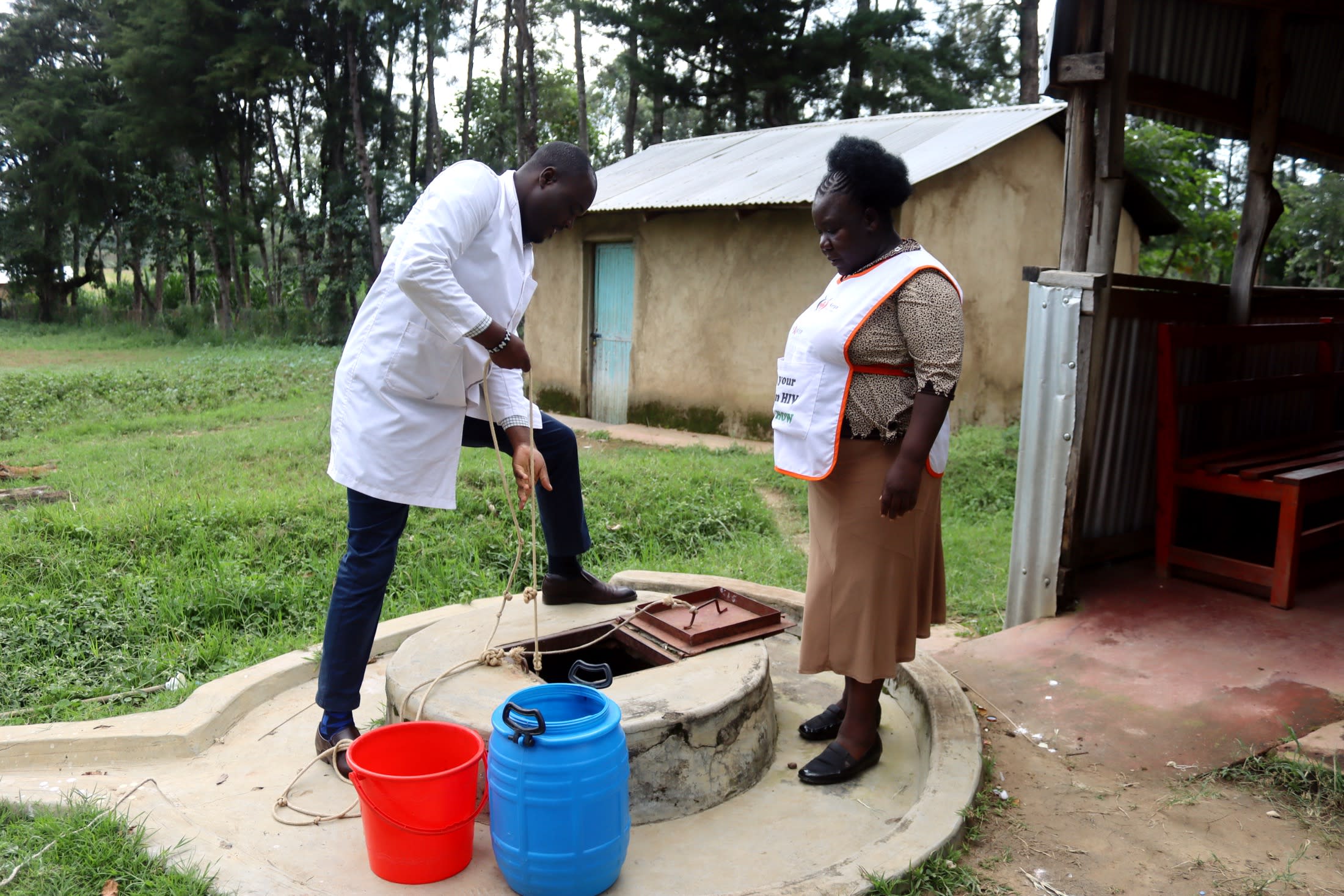
A protected dug well on the clinic premises requires lowering a jerrican into the water and pulling the heavy jug back up each time water is needed. It is a tiresome chore that causes medical workers to neglect patient care.
"The mouth is too wide, which can cause injury to patients or children who might try to fetch water. The protected dug well is seasonal [and] thus dries up during [the] drought season," said field officer Amos Emisiko.
There is also a small rainwater tank, but it's not large enough to hold sufficient water to meet the clinic's needs.
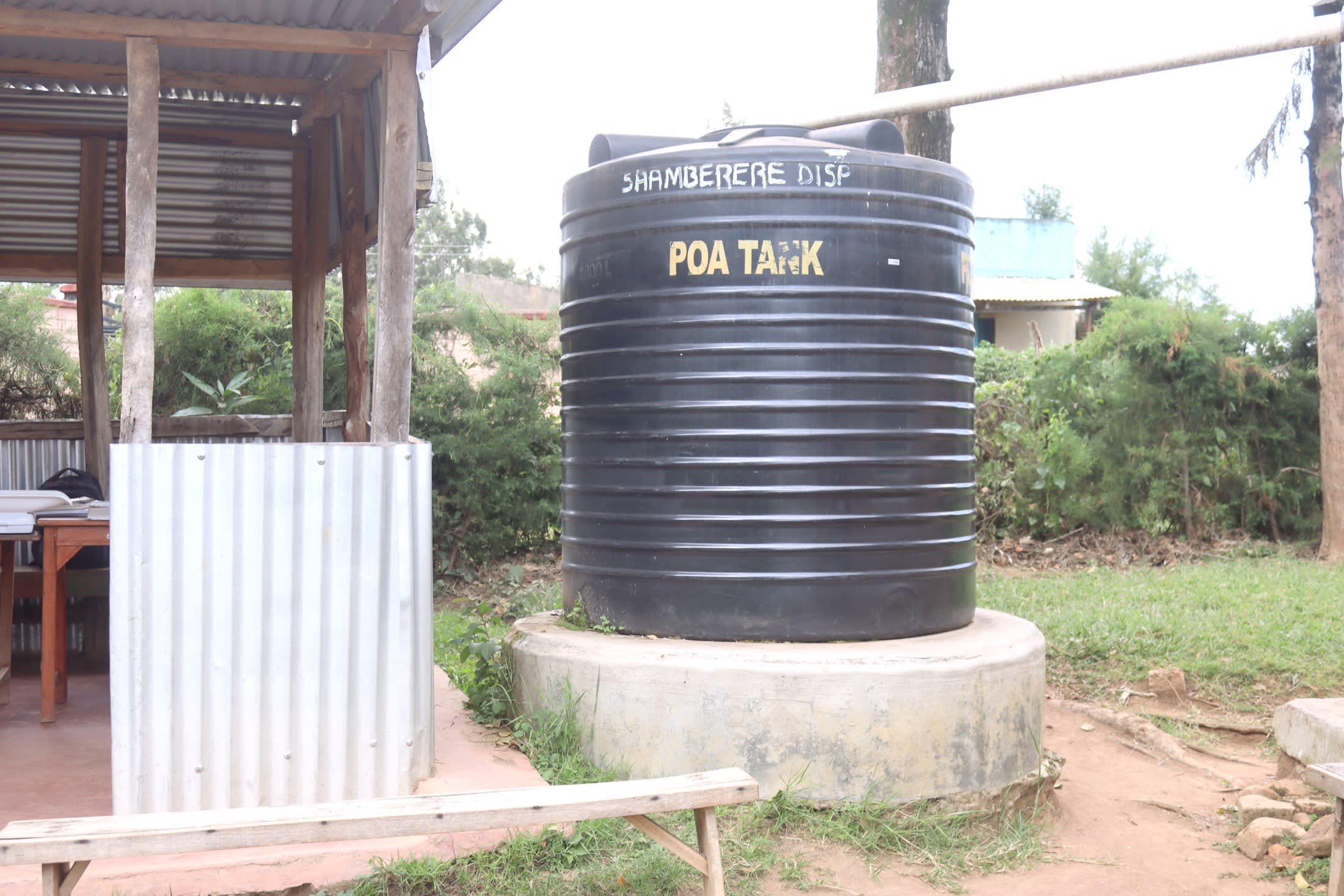
Amos continued, "The health facility, despite having [a] small infrastructure, has the second highest number of people who seek medical care in the sub-county of Malava. The hospital has very hard-working clinical officers who attend to patients well and thus receive high numbers."
Lack of water interrupts medical care for the community. Medical staff member Wesonga Pius (shown below) said, "When we lack water completely, we close down the hospital. All medical processes in the school require water. We lack water for cleaning, cooking, and other activities."

Without enough water for patient care and sanitation, the Shambere Health Center can't provide the medical care the community and a nearby school need.

But lack of water isn't the Shambere Health Center's only problem. The water they can collect is often contaminated.
Amos continued, "The protected dug well in the hospital has a lead cover on the top. People use rope and buckets to draw water; using the same rope with many people is not clean [it] contaminates [the] water.
Water-related illnesses are often the reason people seek medical care, but when the clinic they visit has contaminated water, it doesn't create a healing environment.
Margaret S. (seen below) shared her experience. "I have come to be treated [when] I have malaria. The doctor was advising me to use the water in the filter to take medicines. The water in that protected dug well is not clear, and it smells when you drink it directly without it being filtered or treated."

Installing the new borehole well will enable staff like Wesonga to create a more effective and healing environment. Patients like Margaret will no longer consume contaminated water and can focus again on getting well.
The Proposed Solution, Determined Together...
At The Water Project, everyone has a part in conversations and solutions. We operate in transparency, believing it benefits everyone. We expect reliability from one another as well as our water solutions. Everyone involved makes this possible through hard work and dedication.
In a joint discovery process, community members determine their most advantageous water solution alongside our technical experts. Read more specifics about this solution on the What We're Building tab of this project page. Then, community members lend their support by collecting needed construction materials (sometimes for months ahead of time!), providing labor alongside our artisans, sheltering and feeding the builders, and supplying additional resources.
Water Access for Everyone
This water project is one piece in a large puzzle. In Kenya, Sierra Leone, and Uganda, we're working toward complete coverage of reliable, maintained water sources that guarantee public access now and in the future within a 30-minute round trip for each community, household, school, and health center. One day, we hope to report that this has been achieved!
Training on Health, Hygiene & More
With the community's input, we've identified topics where training will increase positive health outcomes at personal, household, and community levels. We'll coordinate with them to find the best training date. Some examples of what we train communities on are:
- Improved hygiene, health, and sanitation habits
- Safe water handling, storage & treatment
- Disease prevention and proper handwashing
- Income-generation
- Community leadership, governance, & election of a water committee
- Operation and maintenance of the water point
Handwashing Stations
Alongside each water source, we also provide two new gravity-fed handwashing stations that will allow everyone at the health center to wash their hands without running water. Handwashing is so important to help prevent illnesses, especially at a health center where hygiene is critical to vulnerable patients.
The health center staff will maintain the stations, fill them with water, and supply them with soap.

 Borehole Well and Hand Pump
Borehole Well and Hand Pump
 Rehabilitation Project
Rehabilitation Project














